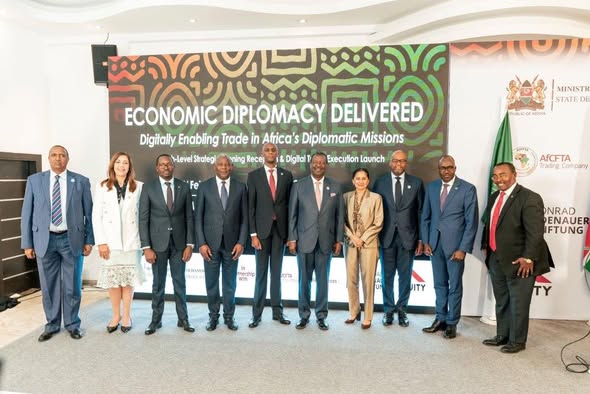Debt, Tariffs, and Distrust: The Three Major Threats Undermining Global Trade

Strangled by a record $31 trillion debt, developing countries are watching global trade falter under the weight of escalating tariff tensions. In Geneva, the United Nations agency for trade and development issued a call on Monday to defend a rules-based system to prevent a new crisis.
Before the 195 member states gathered in the Swiss city, UNCTAD Secretary-General Rebeca Grynspan reminded delegates that “72% of global trade still takes place within the framework of World Trade Organization rules.”
The WTO, the guarantor of smooth international trade, has nonetheless been paralyzed since 2019, following the U.S. decision to block the appointment of new judges to its dispute settlement body — the key mechanism for resolving trade conflicts between states.
This institutional paralysis has been compounded by a surge in tariff barriers, after Washington raised duties on several of its trading partners earlier this year.
“We have so far avoided the domino effect of a tariff escalation like the one that crippled the global economy in the 1930s. That did not happen by chance—it happened because of you: because you kept negotiating when it seemed pointless, defending a rules-based system while seeking to reform it, and building bridges even when they collapse,” Grynspan said.
A fragile balance, then, one that depends on nations’ willingness to keep the dialogue open.
Impossible Choices for the Poorest
UNCTAD’s warning, delivered during its plenary session from October 20 to 23, comes as the global economy enters a turbulent phase: rising tariffs, record debt, and growing distrust among trading partners. According to Grynspan, these three interlinked factors are now stifling development.
“A debt and development crisis is already unfolding, forcing countries into impossible choices,” said the Costa Rican economist. “They must decide: default on their debt or on their development.”
According to UNCTAD, tariffs imposed by major powers—including the United States—have surged this year from 2.8% to over 20%. “Uncertainty is the highest tariff of all,” Grynspan added. “It discourages investment, slows growth, and makes trade as a path to development far more difficult.”
Investment in Freefall
Warning signs are multiplying. In Geneva, the UNCTAD chief cautioned that global investment flows are shrinking for the second consecutive year, jeopardizing “tomorrow’s growth.” The current system, she lamented, “favors projects in rich economies,” to the detriment of developing countries, where “a U.S. dollar is three times more expensive in Zambia than in Zurich.”
Transport costs further deepen these inequalities: landlocked and small island states pay shipping bills up to three times higher than the global average.
As for artificial intelligence—touted as the next engine of prosperity—fewer than one in three developing countries has a strategy to harness it, while 2.6 billion people, mostly women, still lack access to the Internet.
An Unsustainable Debt Burden
From New York, UN General Assembly President Annalena Baerbock echoed these alarming findings. The public debt of developing countries, she recalled, reached $31 trillion last year.
As a result, “Instead of investing in their people’s future—by building more schools or expanding healthcare services—many governments are channeling precious funds into debt servicing,” lamented the former German foreign minister.
According to Baerbock, the erosion of trust in international trade is driven by the persistence of a two-speed system: despite a global economy worth over $100 trillion a year, one in two people “has seen their income stagnate or decline over a generation.”
Source : NATIONS Infos





